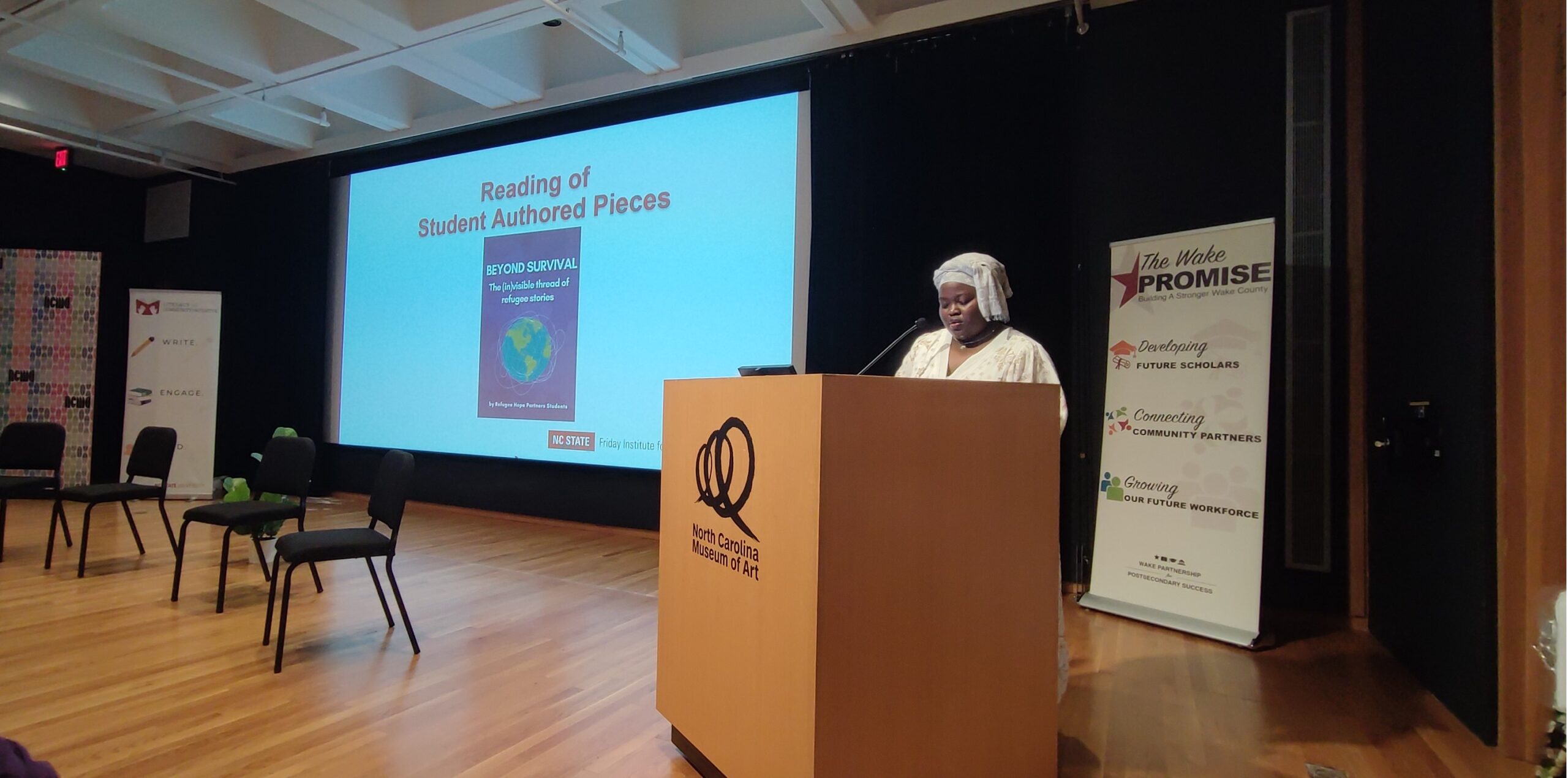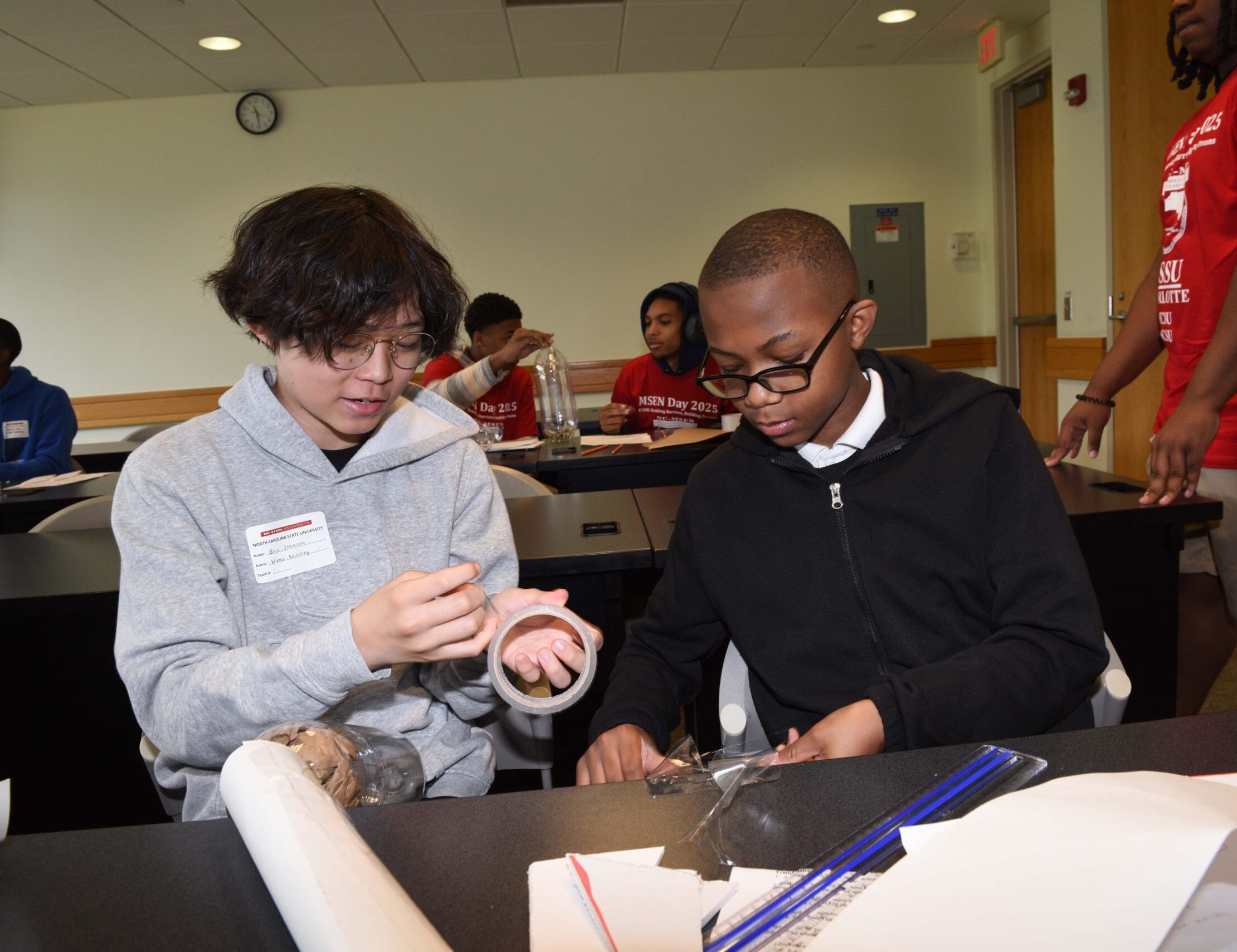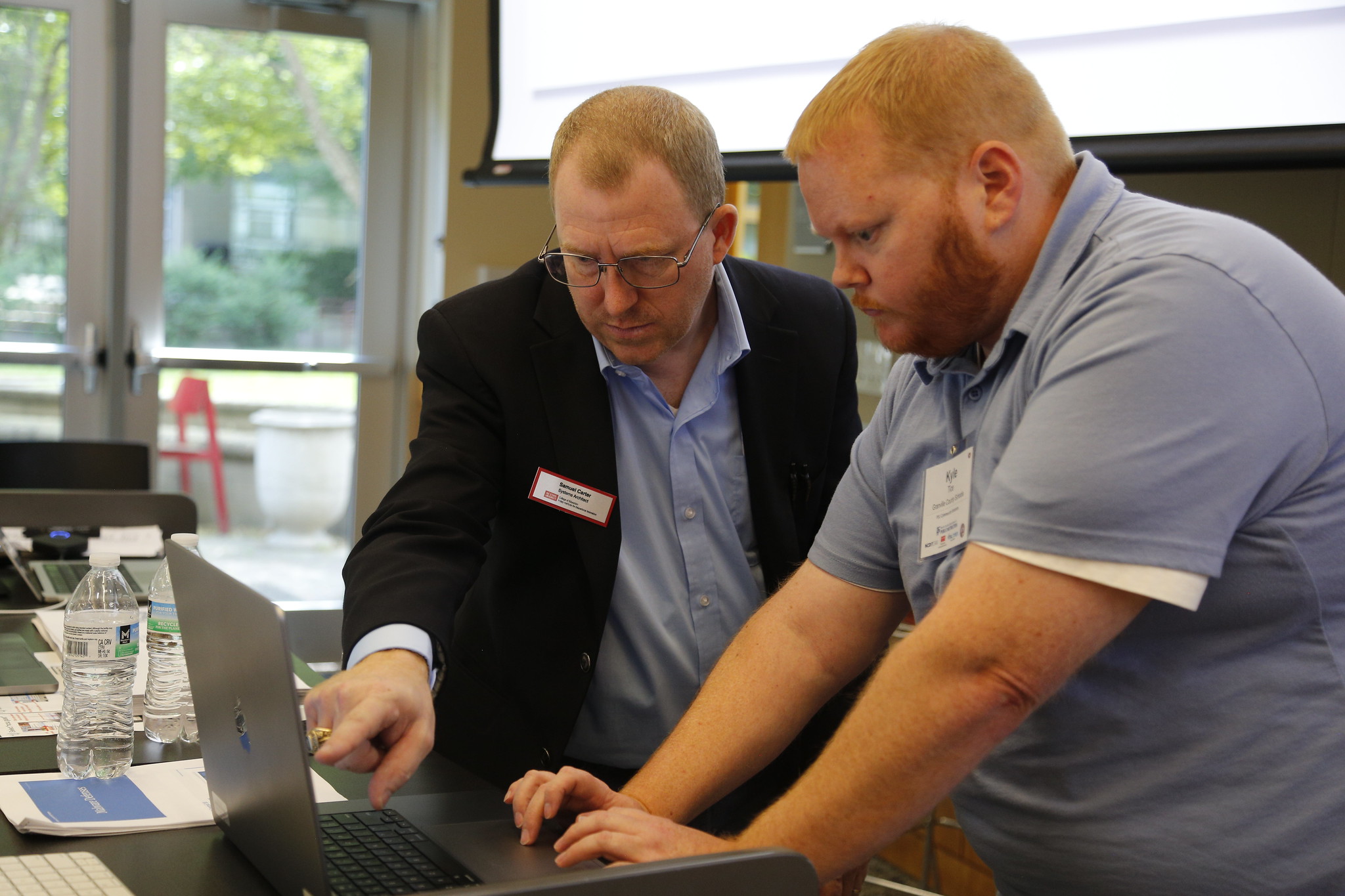Educators Share Lessons From the NC Conference for Educational Equity
In Feb. 2020, Patricia Hilliard, Ph.D., had an idea to hold a small conference in spring 2021 about educational equity. Then the coronavirus came to the United States and forced schools to move instruction online, where the inequities in education were magnified. Simultaneously, more and more Black lives were being taken by the police, Black Lives Matter protests increased around the world, and racial equity was pushed to the forefront of the national conversation. In response, Hilliard and her colleagues decided this educational equity conference needed to happen immediately.
“Our intention was to provide North Carolina educators, especially those who generally do not have access or the financial means to attend conferences outside of their districts, the opportunity to examine equity while remaining in the comfort of their own homes,” said Hilliard, conference organizer and a research scholar at the Friday Institute for Educational Innovation. “We wanted to provide a space for educators to exchange ideas, challenge prevailing ideals and walk away with a new perspective and ready to take action. This free virtual conference provided an equitable means for each and every educator to expand their knowledge of educational equity.”
Inequities abound in education, from suspension rates to test scores. For example, looking at race alone, Black students make up 25% of children enrolled in North Carolina public schools but receive 55.2% of short-term suspensions. Also, while 70% of white students earn an ACT score of 17 or higher, only 32% of Black students and 40% of Hispanic students earn the same score, according to data from the Public School Forum of North Carolina.
In order to address these inequities, the NC Conference for Educational Equity, a two-day virtual conference for K-12 North Carolina educators, was focused on rethinking the current educational system, disrupting a broken system, and developing innovative practices, policies and processes that create equitable outcomes for every student in North Carolina. More than 2,600 people from public schools, businesses and community organizations registered for the conference. Participants could choose from 19 sessions focusing on equity for multiple facets of student identities, such as race, gender and culture. Presenters represented organizations from across North Carolina, including Appalachian State University, Best NC, Charlotte Mecklenburg Schools, Juntos, Legal Aid of NC, the National Center for Learning Disabilities, the North Carolina Department of Public Instruction, the Public School Forum and RTI International.
Rethink
Tru Pettigrew, the founder and president of Tru Access, delivered the opening keynote presentation. Tru Access serves organizations by helping them bridge gaps across racial, generational and relational divides. During his presentation, Pettigrew explained the importance of first understanding diversity as it relates to equity and inclusion and then going beyond it into actions such as examining unconscious biases and having important conversations with colleagues.
The keynote was just one of many sessions that addressed the need to rethink and reexamine current educational practices, whether by looking at the intersectional impact of trauma or listening to lesser known student narratives about their educational experiences.
Educators were very interested and engaged in these sessions. Based on responses from the conference’s evaluation survey, 89.4% had been interested in learning more about equity and African American students and 52.8% of participants registered for five or more sessions. During each session, educators shared their lessons, resources and ideas with each other online, amazed with what they learned about their students and a system they thought they knew so well.
Disrupt
Repeatedly throughout the conference, the point was made that disrupting the current educational system wasn’t going to be easy, but it was going to be necessary to create a more equitable system.
“This conference is not for the faint of heart,” said Dana M. Ellison, conference participant and a fourth grade teacher in the Wake County Public School System. “It deals with and talks about the real issues facing society, which directly affects us as educators. We have to be willing to address white privilege and become educated ourselves so that we can reach all children and be inclusive of all marginalized groups. We have to be willing to have the hard conversations, and these sessions gave us ideas, tools and resources to help us in doing just that! Powerful and transformational things happening here! So glad I decided to do this!”
The conference also disrupted the prevailing thought that equity is exclusively associated with race. It gave voice to inequities experienced by many students, whether through race, gender, sexual orientation, or gifted or special education, something that many attendees noted in their conference evaluation surveys. Attendees said that not exclusively focusing on race made their conference experiences special.
Innovate
According to conference evaluation survey responses, participants found the conference provided them time for awareness about equity issues, as well as information they could share with their colleagues to start conversations. These conversations could lead to changes to create more equitable environments in their schools.
With many new strategies and resources shared to create equitable outcomes for every student in North Carolina, Hilliard is hopeful she will see its impact over the next year.
“The impact of this conference is still unknown,” said Hilliard. “It takes the average person between 66 and 254 days to establish a new habit or behavior; I surmise even longer if that habit was formed under an education system that has systematically marginalized students because of their ethnicity, disability, race, orientation and/or socioeconomic status. I am willing to wait the full 254 days or longer to see the suspension rates of Black boys decrease, LGBTQ+ students feel safe at schools, complete dismantling of a school-to-prison pipeline for exceptional children, and Latinx students experience an inclusive culturally responsive education.”
Although the conference’s impact is still unclear, many shared how valuable their experiences were and how it shifted their mindsets.






















